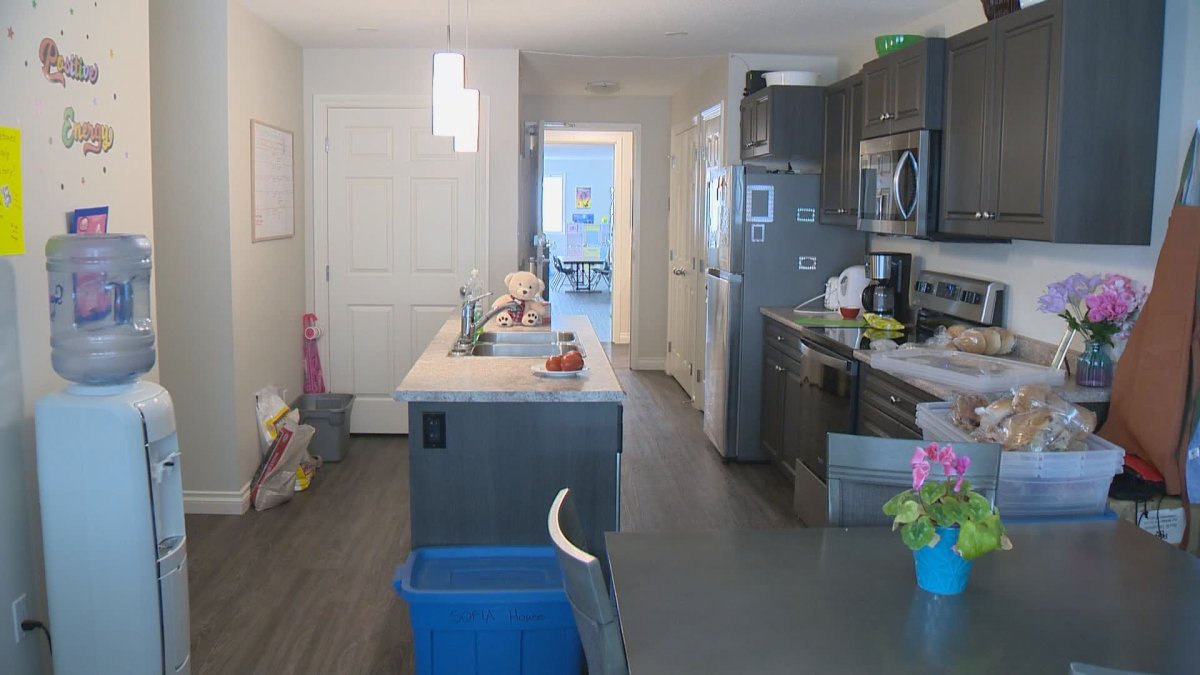Second stage shelters like SOFIA house in Regina are voicing their displeasure with Saskatchewan’s new provincial budget.

“We were very disappointed not to see any sort of operational funding for second stage shelters such as SOFIA house,” said SOFIA House executive director Tmira Marchment.
Saskatchewan is just one of two provinces that doesn’t provide operational funding for second stage shelters. Second stage shelters provide long-term housing and programming for women and children trying to escape abusive situations.
“Saskatchewan has the highest rate of interpersonal violence out of all of the provinces. Crisis shelters are such a needed part in our community and they are almost always full. They are at capacity and turning away thousands of people each year,” said Marchment.
Jo-Anne Dusel says the provincial government has implemented some positive proactive programs and legislation.
“They’re investing in early intervention programs. They were the first jurisdiction in Canada to implement Clare’s Law”, said Dusel, executive director of the Provincial Association of Transition Houses and Services of Saskatchewan.

“We partner with third-party organizations to help out with this housing and that is a form of funding second stage housing, even though we are not running it personally, Mr. Speaker,” said Social Services Minister Lori Carr during question period at the legislature Monday.
In 2022-23, the Ministry of Justice and Attorney General and the Ministry of Corrections, Policing and Public Safety will be allocating $24.9M for interpersonal violence supports including but not limited to:
- $1.1M in programing for children exposed to violence;
- $650K for early outreach and support for those experiencing family violence through the Family Intervention Rapid Support Teams (FIRST);
- $8.7M for shelter services for women and children leaving situations of violence;
- $1.7M in services for those that experience sexual violence;
- $1.9M for intervention and support services, including counselling, for those that experience intimate partner violence.
But Dusel says prevention isn’t enough. Services are needed for situations that aren’t prevented and the value for these shelters goes beyond just providing a roof over a head.
“They can support these individuals in a longer term way when going out and getting a job, pursuing further education, or working their way through government systems like the legal or justice system that can be overwhelming for survivors when they are dealing with so much else in the same time,” said Dusel.

And without these long-term services, safety becomes a risk.
“Then we have people who are forced to go continuously into crisis shelters or go to an unsafe housing situation, or perhaps stay in a relationship that is unsafe because they don’t have anywhere safe to go in the long term,” said Marchment.
Even the shelters that do receive operational funding still need more financing than that.
”They’ve always had to reach out for donations from communities, apply for additional grants, and over the past two years of the pandemic many shelters in Saskatchewan have benefited from federal funding that helped them get through this very difficult time,” said Dusel.
If you or anyone you know is experiencing family or intimate partner abuse please check out Abusehelplines.org or sheltersafe.ca




Comments